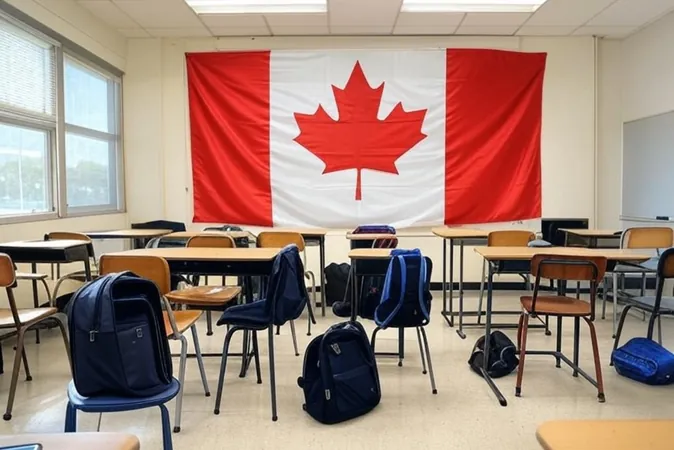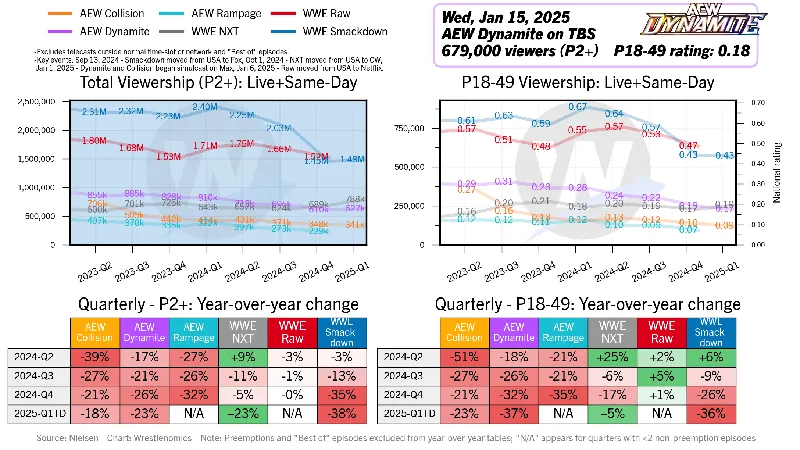
Shocking Discovery: Nearly 50,000 International Students Go Missing in Canada!
2025-01-16
Author: William
In a startling revelation, close to 50,000 international students who were granted study permits to pursue their education in Canada have been reported as "no-shows" by their respective institutions. This concerning data, revealed by the Immigration, Refugees, and Citizenship Canada (IRCC), was collected during the spring of 2024 and indicates a significant issue within Canada’s international student compliance system.
This figure represents 6.9% of all international students monitored by the IRCC, prompting nationwide discussions regarding the efficacy of current regulations and practices.
The Scale of the Issue
Compliance reports submitted by Canadian colleges and universities in March and April 2024 unveiled that a staggering number of international students failed to meet the terms of their study permits. Furthermore, the status of 23,514 students—approximately 3.3% of the total—remains unreported, highlighting lapses in accountability within the system.
The International Student Compliance Regime was implemented in 2014, requiring designated learning institutions to provide twice-yearly updates on the enrollment and attendance of international students. This initiative is aimed at identifying non-compliant students and addressing institutions that may engage in questionable practices.
Countries with High Non-Compliance Rates
Data indicates that certain nations are associated with higher rates of non-compliance among international students. Notably, India has been connected to the largest number of no-shows, with nearly 20,000 students unaccounted for.
Countries like Rwanda and Ghana are also troubling, showing non-compliance rates of 48.1% and 31.1%, respectively, raising alarm over the legitimacy of many study permit applications.
Reasons for Non-Compliance
Experts propose several explanations for why these international students are not abiding by their study permits:
1. **Illegal Crossings into the U.S.**: Reports reveal that some students may exploit their Canadian study permits as a means to cross into the United States unlawfully.
2. **Desires for Employment or Residency**: Many students may choose to remain in Canada to work or pursue permanent residency rather than attending their designated schools.
3. **Fraudulent Practices by Agents**: Legal experts point to the prevalence of unregulated agents and consultants who exploit students, leading to their non-compliance.
Government's Action Plan
In response to this crisis, Immigration Minister Marc Miller announced stricter rules in November 2023 aimed at curtailing the misuse of study permits. New measures could include the suspension of colleges and universities that neglect compliance reporting for up to a year, alongside enhanced monitoring of student status.
Minister Miller's spokesperson, Renée LeBlanc Proctor, acknowledged the rise in exploitation of temporary resident visas, stating, “Canada is aware of increased exploitation of temporary resident visas, including student permits, driven by organized smuggling networks and global migration challenges.”
Urgent Need for Improved Oversight
There is a compelling call for better management of the international student program. Experts advocate for several reforms, including:
- **Advance Tuition Payments**: Proposed measures suggest requiring international students to pay their tuition fees upfront to deter misuse.
- **Utilizing Canadian Consultants**: Advocates recommend limiting the role of foreign agents and emphasizing the use of Canadian-regulated consultants to prevent fraudulent activities.
The discrepancies in data regarding the student population between Statistics Canada and the IRCC also underline the necessity for more precise tracking methods. As it stands, Statistics Canada estimates over one million valid study permit holders in the country, a stark contrast to the 644,349 compliant students reported by the IRCC.
The Road Ahead for Canada's International Education Landscape
As Canada works to balance its status as a premier destination for global education with the integrity of its immigration system, collaborative efforts among policymakers, educational institutions, and regulatory bodies are crucial. Addressing the staggering issue of 50,000 international students being reported as no-shows is essential not only for maintaining Canada's reputation but also for continuing the substantial economic contributions these students make.
With comprehensive strategies, improved oversight, and cooperative frameworks, Canada can tackle these pressing challenges and sustain its attractiveness as an international educational hub.









 Brasil (PT)
Brasil (PT)
 Canada (EN)
Canada (EN)
 Chile (ES)
Chile (ES)
 Česko (CS)
Česko (CS)
 대한민국 (KO)
대한민국 (KO)
 España (ES)
España (ES)
 France (FR)
France (FR)
 Hong Kong (EN)
Hong Kong (EN)
 Italia (IT)
Italia (IT)
 日本 (JA)
日本 (JA)
 Magyarország (HU)
Magyarország (HU)
 Norge (NO)
Norge (NO)
 Polska (PL)
Polska (PL)
 Schweiz (DE)
Schweiz (DE)
 Singapore (EN)
Singapore (EN)
 Sverige (SV)
Sverige (SV)
 Suomi (FI)
Suomi (FI)
 Türkiye (TR)
Türkiye (TR)